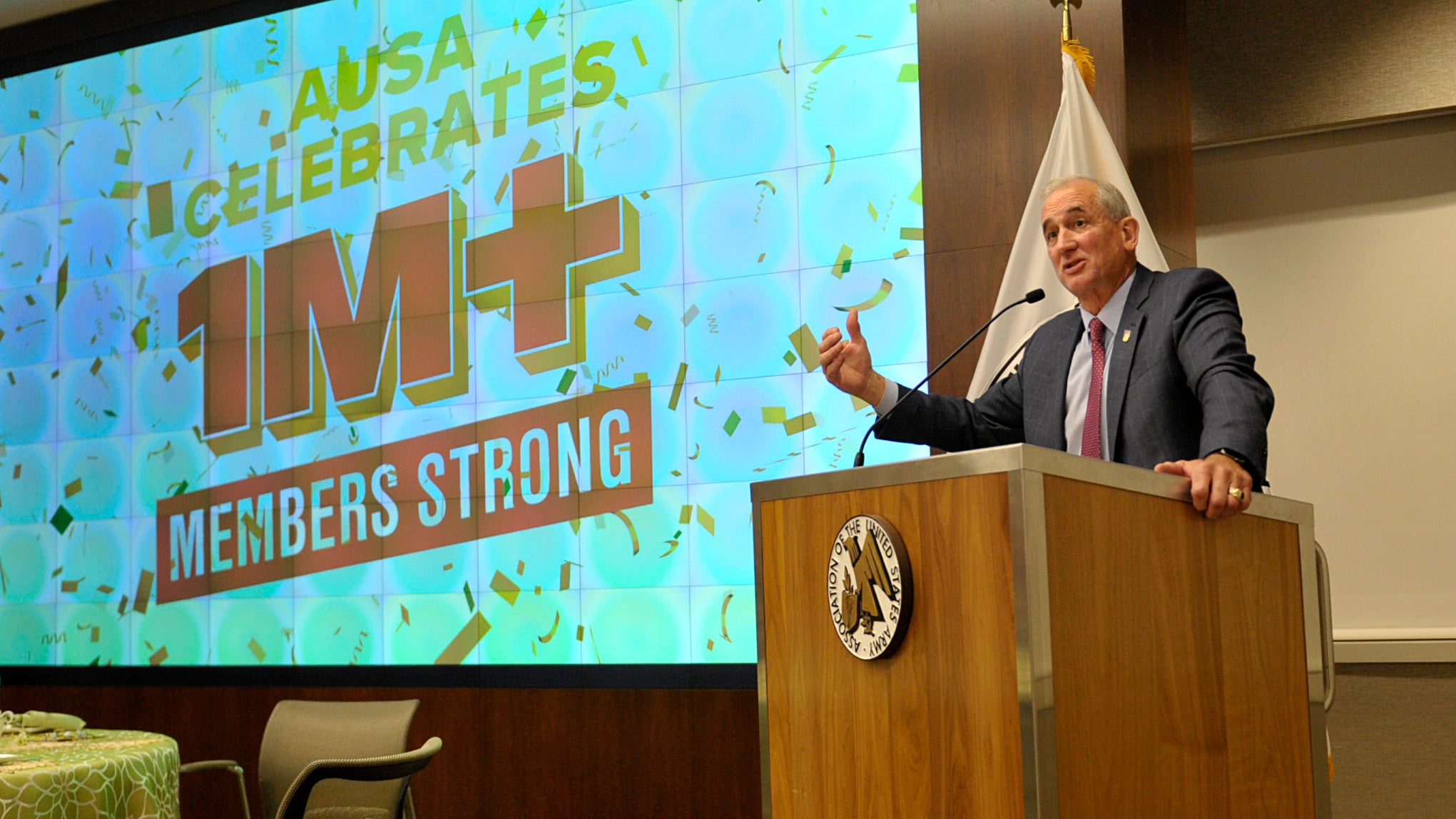AUSA Celebrates Having 1 Million Members
AUSA Celebrates Having 1 Million Members

After a dramatic surge in the past year, the Association of the U.S. Army proudly announces it has reached its goal of having 1 million members.
The growth results from an initiative to provide basic, no-cost memberships to attract younger participants and a concentrated effort to identify like-minded organizations that share AUSA’s support for a strong national defense and Army.
“I am so excited to announce that AUSA now has 1 million members who can further amplify the association’s voice and efforts to support America’s Army,” said retired Gen. Bob Brown, AUSA’s president and CEO.
Founded in 1950, AUSA exists to strengthen the bond between soldiers and the American people, promote the military profession and enhance ties with industry, Brown said. “This has always been a worthy mission,” he said. “It is even more important today as America faces new and expanding threats and an increasing disconnect between service members and the citizens they serve, all while the Army works to transform for the future.”
Under Brown’s leadership, the Army’s premier nonprofit educational and professional association focuses on efforts to educate, inform and connect the Army, its soldiers and families, the defense industry, military communities and the public.
“We recognize that there is power in numbers,” said retired Brig. Gen. Jack Haley, vice president of Membership and Meetings at AUSA. “With a larger membership, we are able to speak with a stronger voice on behalf of our members and America’s Army.”
AUSA has been working to increase its membership for the past year, adding more than 750,000 members in the past 12 months. To mark the milestone, AUSA celebrated the new members during an event June 26 at AUSA headquarters in Arlington, Virginia, that was held in conjunction with the summer meeting of its Board of Directors, the association’s governing body.
Haley also applauded the efforts of AUSA’s chapter volunteers around the world, “without whom this push to rapidly grow membership would not have been possible.”

